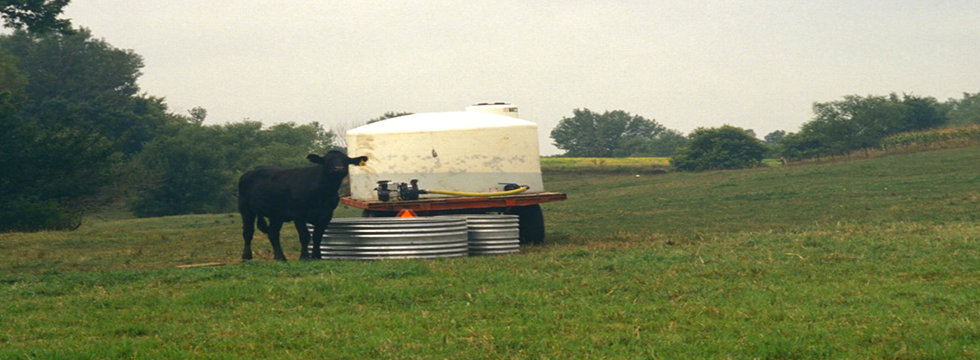
Water Supplementation Caution
Water is a precious commodity for livestock as summer temperatures increase and surface water sources recede. The severe lack of rainfall and resulting drought conditions may lead livestock producers, particularly cattle producers, to provide supplemental water sources to their animals in large, easily transportable bulk tanks. Provision of water to cattle, and other ruminant species in such containers affords an opportunity for inadvertent nitrate and urea poisoning if precautions are not taken as they may have been previously used for fertilizing fields. Although supplementation of water may be necessary, water should not be provided in containers previously used for fertilizer transport even if the containers have been washed and cleaned repeatedly. Nitrate salts and urea are commonly used fertilizer products that can easily kill ruminants. Remnants of these fertilizers left in the tank hoses may also be sufficient to poison cattle.
Ruminants are particularly susceptible to urea and nitrate as a result of the metabolism that occurs within the rumen. Due to the acute nature of both urea and nitrate intoxications, cattle are often found dead with no time to witness clinical signs. Ataxia and tremors may be observed in cattle afflicted by either urea or nitrate. Stiffening of the forelimbs and prostration along within increased urination, frothing at the mouth, and diarrhea may also be observed with urea intoxication. Cyanotic or “muddy” mucous membranes accompanied by respiratory distress are characteristic of nitrate poisoning.
The administration of water to cattle and other ruminant species from tanks contaminated with fertilizer products is known to cause deaths. If these species require an alternative source of water, the use of fertilizer tanks, even those that are washed, should be avoided to prevent such intoxications. A new tank or one that is strictly designated for water should be strongly considered.
